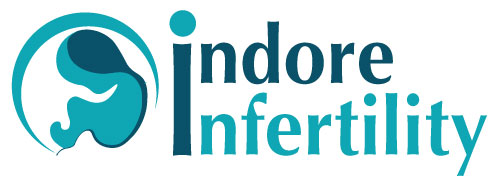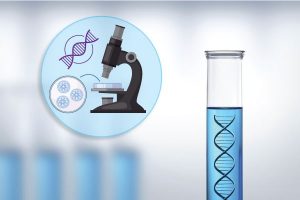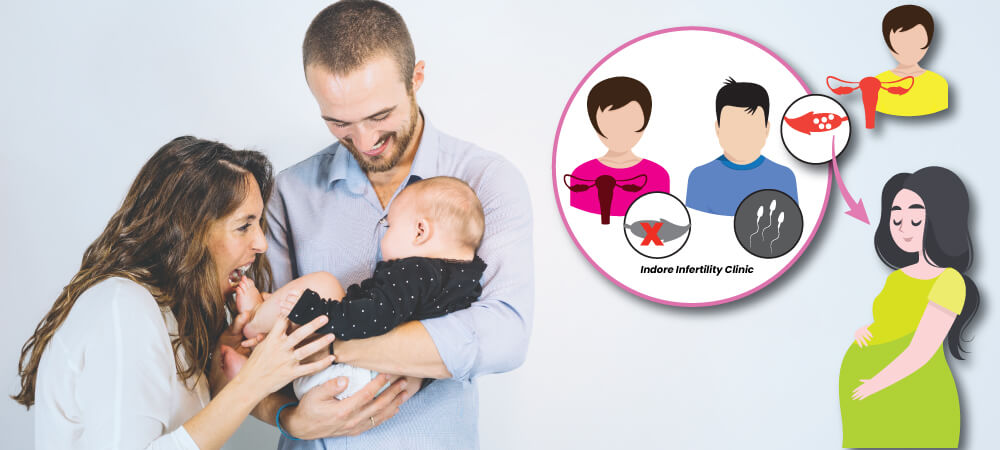
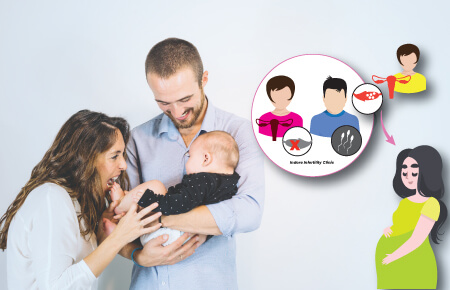
Exploring IVF with Donor Egg Program – A Comprehensive Guide and FAQs
IVF is a method of assisted reproduction, where the eggs are retrieved from the woman and made to fertilize with sperms in a laboratory, and the formed embryo is later transferred in the uterus of the woman to achieve pregnancy.
IVF with donor eggs is a procedure where the mature eggs are retrieved from a female donor’s ovary and fertilized with sperms from the partner. This procedure if opted when female partner is unable to produce healthy and mature eggs.
IVF Donor Egg program involves using carefully screened donor eggs to enhance the chances of successful fertilization and pregnancy. In this blog, we’ll discuss the details of the IVF with Donor Egg Program, shedding light on its specific need in certain cases, how it is done and what are its ethical and other implications. To know more about IVF Donor Egg Program Procedure, please visit this link.
What is IVF with donor eggs, and how does it differ from traditional IVF?
In vitro fertilization (IVF) with donor eggs is an advanced fertility treatment that involves using eggs from a donor instead of the intended mother. This procedure is especially beneficial for couples facing fertility challenges, offering a viable alternative to traditional IVF methods.
When is the IVF with donor egg program considered as an option for patients?
The IVF with donor egg program becomes a consideration when individuals or couples experience difficulties conceiving due to issues such as diminished ovarian reserve, poor egg quality, or other fertility-related challenges that may impact the success of conventional IVF.
What are the key advantages of opting for the IVF with donor egg program?
The main advantages include increased chances of successful fertilization and pregnancy, particularly for those facing fertility problems due to egg quality or quantity. The use of donor eggs is an option in certain cases, and here we are discussing all such cases where using donor eggs might be a reasonable solution.
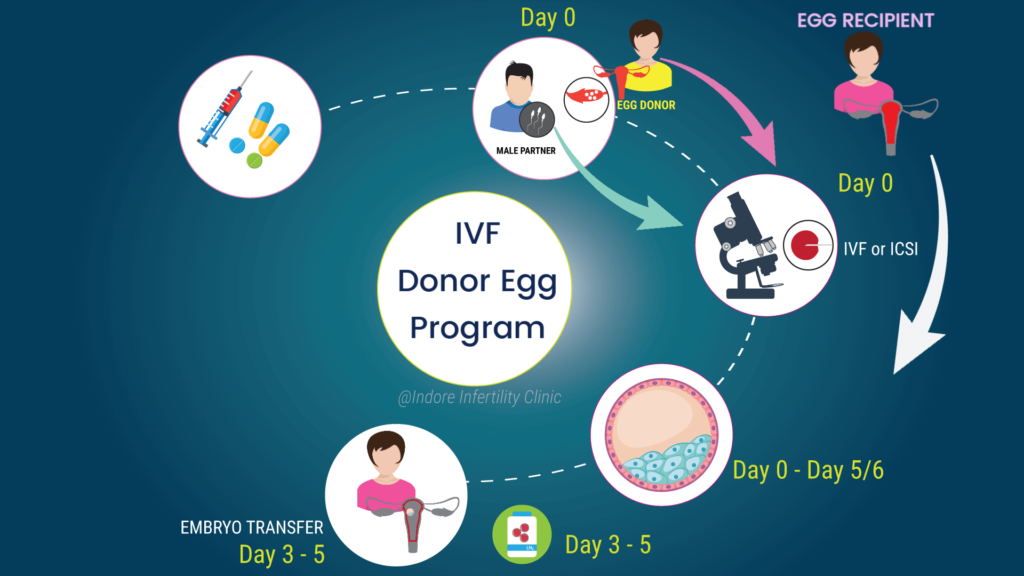
What are the common Indications for IVF with Donor Eggs ?
Advanced Maternal Age:
As women grow older, having a baby can become more challenging. When a woman is 35 or older, we refer to it as advanced maternal age. The number and quality of oocytes reduces as women age, leading to low ovarian reserve. Also risk of certain genetic and chromosomal conditions in the offsprings can also increase as maternal age increases like Down’s Syndrome. Here’s why considering options like the IVF with donor egg program can be a good option:
- Challenges of Getting Older: After 35, it can be harder to become pregnant naturally.
- Understanding Ovarian Reserve: Ovarian reserve is about the quantity and quality of eggs you have. With age, the number and quality of eggs go down.
- How it Affects Your Chances: Older age can lead to a higher risk of miscarriage and problems with baby’s genes and chromosomes. It might take longer to get pregnant, and fertility treatments may not work as well.
In all such cases donor eggs increase the chances of a successful pregnancy.
Premature Ovarian Failure or Premature Ovarian Insufficiency:
- Premature Ovarian Failure (POF): POF happens when the ovaries stop working before the age of 40. This can lead to irregular periods, difficulty getting pregnant, and even early menopause.
- Premature Ovarian Insufficiency (POI): POI is a condition where the ovaries don’t produce enough hormones, affecting fertility. It’s similar to POF but may still allow for occasional ovulation.
- Very Low Ovarian Reserve: When the ovarian reserve is very low, meaning there are few eggs left, it can be tough to conceive. Even with IVF stimulation, the limited number of eggs may not be enough for a successful pregnancy.
Having lesser number of eggs, essentially reduces the chances of successful pregnancy, and thus donor eggs is a viable option for such women. For more details on diminished ovarian reserve, POI and POF please read our blog about the same.
Chromosomal Abnormalities:
Chromosomal disorders are congenital diseases which a baby might have because of difference in the shape or number of chromosomes. Some common chromosomal diseases are – Turner’s syndrome, Down’s syndrome.
Also, there are some genetic conditions which either one of the parents has, or is carrying the abnormal gene. Example- autosomal recessive diseases like sickle cell anaemia and thalassemia (please go through our blog about sickle cell disease and thalassemia)
In all these cases, the couple is advised genetic counselling, and the intention is to avoid transmitting the disease to the child. The way to do it is either plan IVF pregnancy and before implanting the embryo, test the embryos for the concerned genetic or chromosomal gene and select the unaffected or to say the healthy ones, and implant only them. It obviously comes with extra cost as it involves PGT (pre implantation genetic testing of embryos).
Another way to reduce the risk of transmitting the disease to the child is by replacing the gamete from the effected parent. That is, if mother is carrying the concerned gene or defect, donor eggs can be used. This method avoids embryo testing and its costs.
Here is a list of such conditions, in which donor eggs can help reduce the risk of transmission to the child:
- Turner Syndrome: Turner syndrome is a genetic condition where a female is born with partial or complete absence of one X chromosome.
- Robertsonian Translocations: Robertsonian translocations involve a rearrangement of certain chromosomes.
- Balanced Translocations: Balanced translocations occur when parts of two different chromosomes swap places without any missing or extra genetic material.
- Fragile X Syndrome: Fragile X syndrome is a genetic disorder that causes intellectual disabilities and behavioural challenges.
- Mitochondrial DNA Errors: Errors in mitochondrial DNA can impact the energy production of cells. It is mostly transmitted through the woman’s eggs to the baby.
- Autosomal Recessive Diseases: Carrying autosomal recessive diseases like sickle cell anaemia or thalassemia are blood disorders and can pose risks for the offspring.
Instead of extensive genetic testing, gamete replacement (using donor eggs or sperm) is a cost-effective solution to avoid passing on these genetic conditions.
Repeated IVF Failure
In certain cases, the couple can face multiple IVF failures. Replacing one or the other gamete can be an option in these cases. Donor eggs can significantly improve the chances of successful fertilization and a healthy pregnancy.
However, the success doesn’t solely depend on the choice of eggs; the quality of the IVF lab is paramount. A high-quality IVF lab plays a crucial role in distinguishing between poor embryogenesis (development of the embryo) and a suboptimal culture environment.
Importance of a Quality IVF Lab: A top-notch IVF lab is the heart of the fertility treatment process. A superior IVF lab can distinguish between poor embryogenesis, indicating issues with the embryo’s development, and problems related to the culture environment.
Poor quality of eggs in IVF:
one of the common reasons for failed IVF
Let us understand what are the common causes of poor-quality eggs in women.
- Advanced Maternal Age: As a woman ages, the quality and quantity of her eggs naturally decline, impacting their ability to fertilize and develop normally.
- Diminished Ovarian Reserve: A reduced number of eggs in the ovaries, known as diminished ovarian reserve, can contribute to poor egg quality.
- Ovarian Conditions: Certain ovarian conditions, such as polycystic ovary syndrome (PCOS) or endometriosis, can affect egg quality.
- Genetic Factors: Genetic abnormalities within the eggs themselves may result in poor quality, making them less likely to develop into viable embryos.
- Environmental Factors: Exposure to environmental toxins, pollutants, or radiation can negatively impact egg quality.
- Lifestyle Factors: Unhealthy lifestyle choices, including smoking, excessive alcohol consumption, and a poor diet, can contribute to poor egg quality.
- Hormonal Imbalances: Irregularities in hormonal levels, such as imbalances in follicle-stimulating hormone (FSH) or luteinizing hormone (LH), can affect egg quality.
- Medical Treatments: Previous medical treatments, like chemotherapy or radiation, can harm the eggs and reduce their quality.
- Poor Response to Ovarian Stimulation: Some women may have a suboptimal response to ovarian stimulation medications during the IVF process, affecting the quality of retrieved eggs.
- Underlying Health Conditions: Certain health conditions, such as diabetes or autoimmune disorders, can impact egg quality.
In all such cases using donor eggs can help the couples achieve pregnancy, with least interventions.
Heritable Genetic Disorders:
Certain genetic conditions run in families, with either or both parents carrying the abnormal gene or genetic defect. Replacing the effected parent’s gamete can help reduce the risk of transmission of the condition to the next generation.
Some common heritable genetic diseases are:
- Spinal Muscular Atrophy (SMA): SMA is a genetic disorder affecting the motor nerve cells in the spinal cord, leading to muscle weakness and atrophy.
- Duchenne Muscular Dystrophy (DMD): DMD is a progressive genetic disorder causing muscle degeneration and weakness, primarily affecting boys.
- Haemophilia: Haemophilia is a genetic disorder impairing the blood’s ability to clot, leading to prolonged bleeding.
- Cystic Fibrosis: Cystic Fibrosis is a hereditary disorder affecting the lungs and digestive system, causing difficulty breathing and poor growth.
- Tay-Sachs Disease: Tay-Sachs is a rare genetic disorder that affects the nervous system, leading to a progressive loss of motor skills and cognitive function.
- Sickle Cell Anaemia: Sickle Cell Anaemia is a genetic blood disorder where red blood cells become misshapen, leading to pain and organ damage. Please go through our blog about sickle cell anaemia for more understanding about it.
- Thalassemia: Thalassemia is an inherited blood disorder affecting the production of haemoglobin, leading to anaemia. Please read our blog about thalassemia for more details.
- Huntington’s Disease: Huntington’s is a neurodegenerative disorder causing involuntary movements, cognitive decline, and emotional disturbances.
- Fragile X Syndrome: Fragile X is a genetic condition causing intellectual disabilities and behavioural challenges.
Other Monogenic Disorders:
Mono-genic disorders affect different systems in the body by effecting a single gene in the body and hence termed as monogenic. There are thousands of monogenic disorders that impact our health, here are some of the well-known monogenic disorders:
- Alpha-1 Antitrypsin Deficiency: A genetic disorder that can lead to lung and liver disease due to inadequate production of a protective protein.
- Polycystic Kidney Disease (PKD): A genetic disorder characterized by the formation of cysts in the kidneys, leading to kidney dysfunction.
- Neurofibromatosis: A group of genetic disorders causing the growth of tumours on nerves, skin, and other parts of the body.
- Marfan Syndrome: A connective tissue disorder affecting the heart, blood vessels, bones, and other parts of the body.
- Familial Hypercholesterolemia: A genetic disorder leading to high cholesterol levels, increasing the risk of heart disease.
- Gaucher Disease: A rare genetic disorder where fatty substances accumulate in cells, affecting various organs.
- Wilson Disease: A disorder causing copper to accumulate in the liver and other organs, leading to various health problems.
- Albinism: A group of genetic disorders characterized by a lack of pigment in the skin, hair, and eyes.
- Ehlers-Danlos Syndrome: A group of connective tissue disorders affecting the skin, joints, and blood vessels.
- Primary Immunodeficiency Disorders: A group of genetic disorders impairing the immune system’s ability to defend against infections.
When Both Parents as Carrier of rare genetic disorder
If both parents carry a gene for a heritable disorder, there’s a risk of passing it on to their children. This makes it necessary to replace one of the gametes. In cases where both parents are carriers, gamete replacement (using donor eggs or sperm) can reduce the risk of the concerned condition or disease in the next generation. Compared to other alternatives, such as genetic testing (PGT), gamete replacement is a more affordable option with a one-time cost to be paid.
There are also certain rare conditions which are transmitted genetically, from parents to children. Using donor eggs can reduce the risk in the child, and hence a viable option.
Here is a list of some rare genetically transmitted conditions:
- Lupus or SLE (Systemic Lupus Erythematosus): Lupus or SLE is a chronic autoimmune disease that can affect various parts of the body, leading to inflammation and tissue damage.
- Hereditary Angioedema (HAE): HAE is a rare genetic disorder causing episodes of severe swelling in various areas of the body.
- Maple Syrup Urine Disease (MSUD): MSUD is a rare metabolic disorder where the body is unable to process certain amino acids.
Family History of Carcinoma or elevated risk of genetic diseases:
There are certain cancer syndromes that run-in families, and are transmitted through certain abnormal genes in the family.
For those with heightened concerns about malignancies or carrying mutated genes such as BRCA, Lynch syndrome and many others donor egg replacement emerges as a simple cost-effective solution.
Here is a list of some commonly known familial cancer syndromes, which can run in families:
- Hereditary Breast and Ovarian Cancer (HBOC): Mutations in BRCA1 and BRCA2 genes increase the risk of breast and ovarian cancers.
- BRCA Mutation and Cancer Risk: The BRCA gene mutations significantly elevate the risk of breast and ovarian cancers among carriers. This gene is transmitted by Autosomal Dominant way, which means, if the parent has that gene the next generation will also inherit the gene, as well as the risk of breast and ovarian cancers which is much more than the unaffected people.
- Lynch Syndrome (Hereditary Nonpolyposis Colorectal Cancer – HNPCC): A genetic condition linked to an increased risk of colorectal and other cancers, including endometrial, ovarian, and stomach cancers.
- Familial Adenomatous Polyposis (FAP): A condition characterized by the development of numerous polyps in the colon and rectum, leading to a high risk of colorectal cancer.
- Li-Fraumeni Syndrome: A rare genetic disorder associated with a high risk of various cancers, including breast cancer, sarcomas, and brain tumours.
- Multiple Endocrine Neoplasia Type 1 (MEN1): A syndrome causing tumours in the endocrine glands, including the parathyroid, pancreas, and pituitary gland.
- Multiple Endocrine Neoplasia Type 2 (MEN2): A condition leading to tumours in the thyroid, adrenal glands, and parathyroid.
- Von Hippel-Lindau (VHL) Syndrome: A genetic disorder causing tumours and cysts to develop in various organs, including the kidneys, pancreas, and eyes.
- Hereditary Diffuse Gastric Cancer (HDGC): Linked to mutations in the CDH1 gene, increasing the risk of stomach cancer.
- Hereditary Leiomyomatosis and Renal Cell Cancer (HLRCC): A syndrome associated with an increased risk of uterine leiomyomas (fibroids) and renal cell carcinoma (cancer of the kidney).
- Neurofibromatosis Type 1 (NF1): A genetic disorder leading to the formation of tumours on nerves, skin, and other parts of the body.
- Turcot Syndrome: A rare genetic condition associated with an increased risk of colorectal cancer and brain tumours.
- Birt-Hogg-Dubé Syndrome: A disorder linked to an increased risk of kidney tumours, skin lesions, and lung cysts.
- Cowden Syndrome: A genetic condition leading to the development of multiple hamartomas and an increased risk of breast, thyroid, and endometrial cancers.
- Hereditary Pancreatitis: A condition associated with chronic inflammation of the pancreas, increasing the risk of pancreatic cancer.
- Gorlin Syndrome (Nevoid Basal Cell Carcinoma Syndrome): A genetic disorder causing the development of basal cell carcinomas and an increased risk of other cancers.
Ovarian Removal due to Accident or Malignancy:
In certain challenging scenarios, the removal of ovaries due to accidents or malignancies can significantly impact a woman’s fertility.
Following are common causes for removal of ovaries in women:
- Ovary Removal Due to Accidents: Accidents leading to the removal of ovaries can abruptly disrupt natural reproductive capabilities.
- Ovary Removal Due to Malignancies: Malignancies, such as ovarian cancer, may necessitate the removal of ovaries as part of the treatment strategy.
Following points should be kept in mind in such cases:
- Impact on Fertility: The removal of ovaries directly affects fertility, as it eliminates the source of eggs necessary for natural conception.
- Importance of Oocyte Donation: Oocyte donation is a simple and practical solution for those who have lost their ovaries.
- Ensuring Genetic Connection: Oocyte donation enables couples to maintain a genetic connection with the child, as the sperm used for fertilization is often from the intended father.
How can donor eggs reduce the cost of IVF treatment?
Here are a few reasons where Donor IVF program may be more cost effective as compared to genetic testing of embryos or IVF with Pre implantation genetic testing:
- One time intervention: It is a single intervention, and the cost of the process is less than the PGT.
- Less invasive as compared to PGT or Embryo Biopsy.
- Higher success rates: Donors are of younger age group and using their eggs generally is known to give higher success.
FAQ - Donor Egg Program
Q1: Is IVF with donor eggs more affordable than other options like genetic testing of embryos?
A: Yes, currently gamete replacement through donor programs can be a cost-effective solution, especially in cases of genetic disorders. Here’s why:
- Cost of Genetic Testing: The process of embryo testing requires advanced lab and trained personnel. First embryo biopsy is taken followed by genetic analysis. It usually increases the cost of the whole procedure significantly.
- Multiple Testing Cycles: Some times when sufficient number of embryos are not formed, multiple cycles of ovarian stimulation might be needed to find the healthy or unaffected embryos, and it can also increase the overall treatment costs.
- Gamete Replacement as a Single Intervention: Gamete replacement or in this case oocyte replacement by donor eggs, is a one step process, reducing the risk of the concerned disease as well as avoiding the embryo testing. It is a cost-effective option compared to embryo testing.
- Efficiency in Achieving Pregnancy: The donor egg program ensures that healthy young donors are selected for oocyte donation, and hence they have higher chances of success.
Q1: Does IVF with donor eggs have higher success rate than options like IVF with PGT for genetic testing?
A: Yes. However, it’s important to understand the dynamics of genetic makeup. While PGT offers a chance to have a baby with your genetic makeup, the overall cost, time invested is more and success rates might be lower.
- Genetic Makeup Consideration:
While donor egg IVF enhances the chances of pregnancy, it involves a genetic contribution from the egg donor. This means that the resulting child will not share the genetic makeup of the intending mother. - PGT for Genetic Testing:
Preimplantation Genetic Testing (PGT) is a technique that allows for the screening of embryos for specific genetic abnormalities before implantation. - Chance for a Biological Connection:
PGT enables intending parents to have a biological connection with their child, as the baby has genes of both parents, while in a donor gamete case, only one parent has a biological connection to the child. This can be particularly important for those who wish to have a child with their own genetic makeup.
Customised treatment plan for each couple: The key is to understand what the couple wants and values more. If it is important for the couple to have a child who is genetically resembling them both, and has a biological connection to both parents, then PGT is a better option, but it comes with higher costs and variable success rate.
If it is more important to the couple to save time, or lesser cost of treatment, than donor egg program is a simple solution.
Consultation with Fertility Experts:
A comprehensive discussion with fertility experts at Indore Infertility Clinic will help you navigate the difficult terrain of infertility. It is also advised to include genetic counsellors whenever an oocyte donor program is chosen because of genetic or in heritable conditions.
This ensures that individuals and couples have a thorough understanding of the available options and can make informed decisions based on their priorities and circumstances.
In essence, the choice between IVF with donor eggs and IVF with PGT involves weighing success rates against the desire for a genetic connection. The decision is highly individualized, and seeking guidance from fertility specialists and genetic counsellors, as they can provide valuable insights before choosing the treatment plan.
Q2: What are the key genetic abnormalities that may require donor eggs?
A: Conditions like Turners syndrome, Robertsonian, balanced translocations, Fragile X, and mitochondrial DNA errors, some autosomal recessive conditions, familial cancer syndromes and monogenic conditions can be avoided in the next generation by using donor eggs. For the whole list of genetic diseases which can be transmitted from parents to children, please go through the above questions in the blog about them.
Q3: Can I choose the donor for my eggs?
A: For couples undergoing IVF by donor gametes, it is a common concern that will the child born resemble them. Following points are considered while selecting the donor for any couple intending IVF using donor eggs:
- Physical appearance: features like eye colour, hair colour, skin colour, build resembling the intended parents as much as possible.
- Healthy: basic blood tests are testing for infectious diseases are done, and only those found healthy are selected to donate eggs.
Practically speaking egg donors can be of two types:
- Known donors: you can choose egg donors from your friends, family or anybody you wish to be your egg donor, if they are willing to help you.
- Unknown donors from ART Bank: you can assign the ART bank for selecting the donors for you, and the whole process will be anonymous and confidential.
In India the ART Act 2021 regulates all the legal aspects pertaining to artificial reproductive treatment. It guides and regulates all aspects of this process. It is the duty of the infertility clinic to ensure that they provide the couple with treatment while being ethical and following all the
For more FAQs about the Donor Program, please refer to our blog section on this topic.
Q4: How does donor egg IVF compare to PGT in terms of cost and success rates?
A: Donor egg IVF and PGT offer distinct advantages, each with its own set of pros and cons.
Assessing Donor Egg IVF:
Pros:
- Donor egg IVF can be cost-effective, especially when compared to the cumulative expenses of multiple IVF cycles with genetic testing.
- It involves a single intervention, potentially reducing overall costs.
Cons:
- The cost-effectiveness may vary based on factors such as the clinic’s pricing, the need for additional services, and any legal support required.
- Success Rates:
Donor egg IVF often boasts higher success rates as egg donors are typically young and healthy.
Assessing PGT:
Preimplantation Genetic Testing (PGT) can be cost-effective when considering the potential avoidance of multiple IVF cycles (provided enough embryos are available for testing) by selecting embryos with a higher likelihood of success.
Expense:
PGT involves additional costs, including the testing itself, specialized equipment, and the need for extended laboratory services.
The cumulative expenses may be higher compared to standard IVF without testing.
Success Rates:
- PGT allows for the selection of embryos with a lower risk of genetic abnormalities, potentially leading to higher success rates per transfer.
- Allows both parents to have a genetic connection to the child.
- PGT success rates can be impacted by the accuracy of testing, the quality of embryos available, and other factors.
- It may not eliminate all potential genetic risks.
Considerations:
- Individual Factors: Both options depend on individual circumstances, health factors, and specific fertility problems.
- Consultation with Fertility Experts: Seeking guidance from fertility experts is crucial. They can provide personalized advice based on the specific needs, goals, and health considerations of every couple.
- Emotional and Psychological Impact: Both donor egg IVF and PGT come with their own set of emotional considerations. While PGT allows for completely biologically connected baby, but is sometimes not as cost effective. Donor eggs on the other hand give biological connection to at least the father. The impact should be thoroughly assessed by couples before choosing either of these for family planning.
Q5: Can individuals from the LGBT community or a single man pursue IVF with donor eggs in India?
A: As of now, Indian law does not permit individuals from the LGBT community to undergo IVF with donor eggs. Following points should be considered by people from LGBTQ community:
Legal Restrictions: Till the date of publication of this blog, the Indian law does not allow single men or people from LGBTQ community to become parents using donor eggs. Following points should be considered:
- Changing Landscape: It is advised to stay well informed about any recent amendments and active cases currently awaiting judgement by the courts in India, as the legal landscape is ever changing, especially in this area.
- Exploring Alternatives: Until the law allows LGBTQ couples or people to achieve parenthood using donor eggs, other options should be explored.
- Legal Consultation: consulting with legal aid who specialize in this area would be helpful for single men and people from LGBTQ community.
Q6: Are there support groups or counselling services in India available for individuals going through the process of using donor eggs?
A: Emotional support is crucial for those navigating the challenges associated with using donor eggs for pregnancy. In India, several support groups and counselling services offer assistance.
We at Indore Infertility Clinic understand the doubts and anxieties that arise in the minds of those considering donor egg program, and hence we offer free first consultation for such couples. Our infertility specialists will discuss your concerns and provide guidance if you are considering donor egg program for your treatment.
Online support groups and resources in India:
- Fertility Clinics: Many fertility clinics in India offer counselling services as part of their fertility treatment. This includes guidance on using donor eggs and addressing psychological concerns.
- Free First Consultation at Indore Infertility Clinic: We understand the importance of emotional support in your fertility journey. Our clinic offers a free first consultation to discuss concerns, answer questions, and provide initial guidance, support, information, and a sense of community for Indian couples navigating the complexities of using donor eggs in their fertility journey.
Taking advantage of Indore Infertility clinic’s free first consultation, couples can access the support needed in planning a family. Discuss all your dilemmas and doubts with our experts. We take pride in providing compassionate and ethical solutions to your problems. Our advanced IVF lab has state of the art equipment and is supervised by Internationally certified embryologists.
